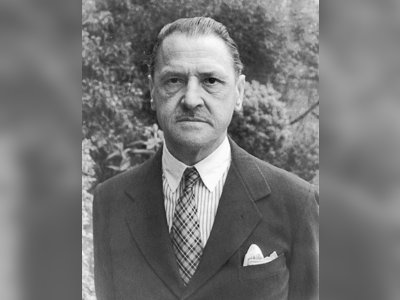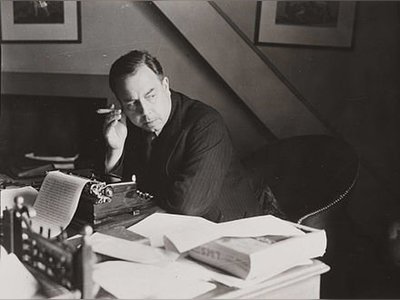British Heritage
Remember, Cherish, Learn.
beta
John Osborne - From Angry Young Man to Almost A Gentleman
John Osborne - From Angry Young Man to Almost A Gentleman.
Contribution to British Heritage
John Osborne, an English playwright, screenwriter, and actor, made a significant contribution to British heritage through his groundbreaking work in the theatre. His play "Look Back in Anger," written in 1956, played a pivotal role in transforming English theatre and breaking away from the formal constraints of the post-imperial generation. Osborne used theatre as a powerful weapon to challenge established social and political norms, and through his excoriating prose, he gave voice to the discontent of the younger generation in post-war Britain.
The success of "Look Back in Anger" marked a turning point in British theatre, making it artistically respected once again. He brought back the focus on language, rhetoric, and emotional intensity, presenting characters that resonated with the audience's struggles and frustrations. Osborne's contribution to British heritage lies in his ability to capture the essence of the changing times and his relentless pursuit of artistic truth and social commentary.
Early Life and Career
John James Osborne was born on 12th December 1929 in London to Thomas Godfrey Osborne, a commercial artist, and Nellie Beatrice Grove, a Cockney barmaid. He grew up in north Surrey, but he felt disdain for the suburban environment, considering it a cultural desert.
After an expulsion from school, Osborne pursued various jobs before finding his passion for the theatre. He worked as a stage manager and actor, and later, with the help of his mentor Stella Linden, wrote his first play, "The Devil Inside Him." In 1951, he married Pamela Lane and co-wrote "Personal Enemy," which was staged in regional theatres.
Look Back in Anger
The turning point in Osborne's career came with the creation of "Look Back in Anger." He wrote the play while performing in a repertory theatre and drew from his own experiences of tumultuous relationships and disillusionment. The play was rejected by several agents in London until it caught the attention of the newly formed English Stage Company at the Royal Court Theatre, led by George Devine.
The play premiered in 1956 and received mixed reviews from critics. However, it was highly praised by influential critic Kenneth Tynan, which led to its commercial success. "Look Back in Anger" resonated with the audience, and its emotional intensity and raw depiction of post-war discontent struck a chord with the younger generation.
Legacy and Success
Following the triumph of "Look Back in Anger," Osborne continued to write for stage, film, and TV. He explored various themes and genres, often challenging societal norms and conventions. Some of his notable works include "The Entertainer," "Luther," and "A Patriot For Me," which further solidified his reputation as a bold and influential playwright.
Osborne's legacy lies in his contribution to modern British drama. He paved the way for a new generation of playwrights, inspiring artists like Edward Albee and Mike Leigh. His plays continued to be performed globally, and his influence on the theatre scene persisted long after his passing.
Personal Life and Relationships
Throughout his life, Osborne had a tumultuous personal life and turbulent relationships. He was married five times, and many of his relationships were marked by infidelity and mistreatment. His marriages were often unhappy, except for his last marriage to Helen Dawson, a former arts journalist and critic.
His most famous and controversial relationship was with the actress Jill Bennett, whom he came to loathe. Their marriage deteriorated into mutual abuse and insults. Bennett's suicide in 1990 is believed to have been a result of Osborne's rejection of her.
Later Life and Death
In his latter years, Osborne settled into the role of a Shropshire squire with irony and pleasure. He continued to write and published frank volumes of autobiography, shedding light on his life and relationships. Osborne battled health issues, including diabetes, and died in 1994 at the age of 65 at his home in Clunton, near Craven Arms, Shropshire.
John Osborne's contribution to British heritage through his revolutionary plays, critical stance, and impactful storytelling will forever be remembered in the annals of theatre history. Despite his complicated personal life, his dedication to artistic truth and his ability to challenge societal norms left an indelible mark on the British cultural landscape.
- John Osborneen.wikipedia.org







